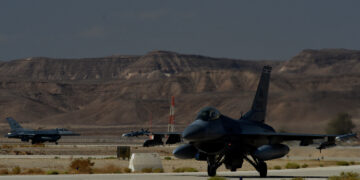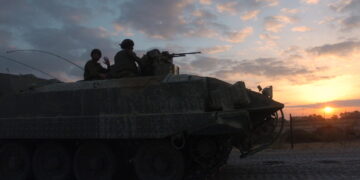January 3, 2020
Remove U.S. forces from Iran’s reach, especially amid maximum pressure and escalation
FOR IMMEDIATE RELEASE:
January 3, 2020
Contact: press@defensepriorities.org
WASHINGTON, DC—Today, media outlets reported the Trump administration will send 3,500 additional U.S. troops to the Middle East following military strikes that killed Iranian military commander Qassem Soleimani. Defense Priorities Policy Director Benjamin H. Friedman issued the following statement in response:
“The U.S. drone strike that killed IRGC commander Qassem Soleimani and five or six of his associates should be judged by its consequences for U.S. security interests. Saying the strike was morally justified does not establish its strategic wisdom. U.S. foreign policy should advance U.S. interests, not dispense global justice by punishing the wicked.
“Removing U.S. forces and personnel from Iran’s reach is paramount. Remember, the strike also killed Mahdi al-Muhandis, deputy commander of Iraq’s Popular Mobilization Forces. His death especially seems certain to enrage the various well-armed Shiite militias in Iraq, who fought on the U.S. side against ISIS. The militias include as many as 500,000 fighters by some counts, or roughly 100 times the number of U.S. forces stationed in Iraq. They pose a formidable threat to nearby U.S. forces.
“While Soleimani’s death means he can no longer engage in hostile actions against U.S. interests—a certain good—Iran’s threat does not hinge on any one person. Claims that Soleimani was planning “imminent” attacks when killed could be true, but his killing is likely to increase attacks on U.S. forces. And there are less risky ways to thwart such attacks while avoiding needless escalation that jeopardizes more U.S. soldiers’ lives.
“As the events of the last two weeks underline, the smattering of U.S. forces in the region are insufficient to accomplish any vital objective but are plentiful enough to pull the United States into needless trouble. Rather than send 3,500 more U.S. troops to the Middle East, where they will join in vulnerability with thousands of others, the United States should remove its forces from Iraq and draw down from the broader region.”
More on Middle East

By Jennifer Kavanagh and Dan Caldwell
July 9, 2025

Featuring Rosemary Kelanic and Jennifer Kavanagh
June 30, 2025
Events on Iran







